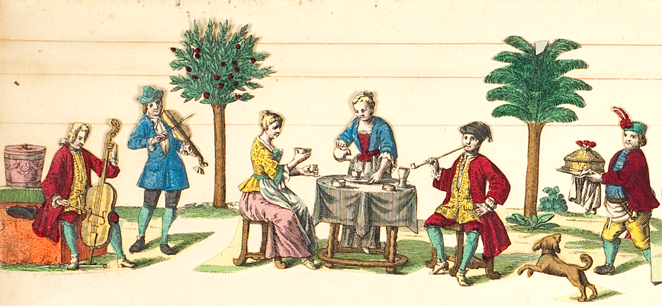Collection context
Summary
- Creator:
- Adorno, Theodor W., 1903-1969 and Grab, Hermann, 1903-1949
- Abstract:
- The Grab mss., 1941-1949, consists of letters from social philosopher Theodor W. Adorno, 1903-1969, to musician Hermann Grab, 1903-1949.
- Extent:
- 1 folio
- Language:
- German .
- Preferred citation:
[Item], Grab mss., Lilly Library, Indiana University, Bloomington, Indiana.
Background
- Biographical / Historical:
Theodor W. Adorno, 1903-1969, was a German philosopher, sociologist, psychologist, musicologist, and composer. Born Theodor Ludwig Wiesengrund, Adorno adopted his Catholic mother's maiden name when he was forced to leave Germany due to his Jewish heritage. Adorno's mother was a talented singer, and Adorno inherited her gift for music. A classically trained pianist, Adorno studied music composition with Alban Berg in Vienna in the early 1920s; there he befriended fellow student Hermann Grab. Although Adorno turned his focus to philosophy, his background in music informed his later writings. In 1931, he completed his thesis on Kierkegaard's aesthetics under the supervision of Paul Tillich. Adorno then started teaching philosophy at the University of Frankfurt but was forced into exile in 1934.
Adorno ended up in the United States, where he became a member of the University of Frankfurt's newly relocated Institute for Social Research. Adorno collaborated on influential studies of authoritarianism, antisemitism, and propaganda that would later serve as models for sociological studies the Institute carried out in post-war Germany. Upon his return to Frankfurt in 1949, Adorno was directly involved with the reconstitution of German intellectual life. He took a position in the philosophy department at the University of Frankfurt and became a leading member of the Frankfurt School of critical theory, for whom the works of Freud, Marx, and Hegel were essential to a critique of modern society. Adorno remained a professor at the University of Frankfurt until his death in 1969. Hermann Grab, 1903-1949, was born into a wealthy aristocratic family of Jewish origin in Prague. He completed graduate studies in both philosophy and law in 1929. After practicing law for a short time, Grab became a music teacher, music critic, and writer. He published his first short story in 1934 and his first novel in 1935. When Nazi Germany occupied Prague, Grab went into exile and eventually settled in the United States. He established a small music school in New York City and completed a second novel. Serious illness prevented him from returning to Prague after World War II. He died in New York in 1949.
- Scope and Content:
The Grab mss., 1941-1949, consists of letters from social philosopher Theodor W. Adorno, 1903-1969, to musician and longtime friend Hermann Grab, 1903-1949. The letters are all in German and were sent from Adorno's southern California residences, first in Los Angeles (November 23, 1941), and then Santa Monica (the 1949 letters). Except for the first, which is handwritten, all are typed. Topics discussed include Adorno's introduction to Grab of University of Southern California Professor of Violin Anton Maaskoff; Adorno's current writings: Philosophie der neuen Musik, Kulturkritik und Gesellschaft, and Minima Moralia; Grab's health and heart condition; Adorno's apartment problems in Santa Monica; and Thomas Mann's book relating to the creation of his novel Doctor Faustus (Die Entstehung des Doktor Faustus).
- Acquisition information:
- Gift: 1998
- Arrangement:
This collection is arranged following original order.
- Physical location:
- Lilly - Folio
Access
- RESTRICTIONS:
-
This collection is open for research.
Many collections are housed offsite; retrieval requires advance notice. Please make an appointment a minimum of one week in advance of your visit.
- TERMS OF ACCESS:
-
Photography and digitization may be restricted for some collections. Copyright restrictions may apply. Before publishing, researchers are responsible for securing permission from all applicable rights holders, then filling out the Permission to Publish form.
- PREFERRED CITATION:
-
[Item], Grab mss., Lilly Library, Indiana University, Bloomington, Indiana.
- CAMPUS:
- Indiana University Bloomington
- LOCATION OF THIS COLLECTION:
-
1200 East Seventh StreetBloomington, Indiana 47405-5500, USA
- CAMPUS:
- Indiana University Bloomington
- CONTACT:
-
(812) 855-2452liblilly@indiana.edu

